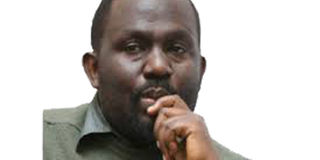There’s ‘good’ in State brutality. It’s good predictor of Uganda in 2030

What you need to know:
If you are the CEO. Of course, if you are say, the CEO of Microsoft, you would prefer to meet Ramaphosa than Museveni because his image is a better fit for your products – a negotiator, kind of compassionate, enlightened, and not “strong” – but if you are the CEO of a big mining or oil company, Museveni is your man. He offers finality and decisiveness.
The last few weeks, as security forces pummelled student protestors at Makerere University, journalists, Kizza Besigye and the Forum for Democracy (FDC) brigade, it felt like Uganda was descending into medieval violence.
This violence is abhorrent, but a while back I was involved in a project predicting future actions of “regime types” in Africa, and I was very surprised that risk analysts preferred regimes like Uganda’s. They were the easiest to predict, because they are very simple and uncomplicated. If you are not the one being clobbered by police and soldiers, but are looking to decide for 2030, the Museveni government is “good”, because you can more accurately predict what it might do.
Its tools are few, and responses limited. It will respond with violence. It doesn’t negotiate. Parliament will always bend to the President’s wish. The courts won’t make an adverse ruling against the State, especially in a case involving the President. If you assume the certainty of violence, and understand the President’s preferences, you will pretty much be accurate.
In that way, the Uganda government is a long-horned cow crossing the road. Cows will rarely turn back when crossing a road and have a car approaching. They will either stop, or plod. A cat on the other hand, is a different game all together. It can do anything. The Uganda government is a cow.
The Kenyan government, on the other, is complex. It is a cat; you don’t know how things might turn out. Parliament will decide to push through a Bill capping bank interest fees, and it will pass despite protests and screams from the government. And President Uhuru Kenyatta will just not throw it back and it is changed like Museveni would.
It will depend on his long game. If he tends to bring a vote for a railway or port expansion loan in a few weeks’ time, he will sign it, and bargain for MPs to approve the loan. And even that, nearly everything in Kenya ends up in court. And only a fool bets on how a Kenyan judge will rule.
There’s constant negotiation. Today’s friends, are tomorrow’s enemies. Tomorrow’s enemies, are the next day’s bosom allies. Kenyan police will be brutal today, and a few will cry while putting down a protest the next day. Famously during the tense 2017 Kenya election, in an Opposition stronghold upon which the security forces had just visited violence, their truck got stuck in a ditch.
The protestors put their weapons (stones, sticks and metals) down, and joined the security officers to push the vehicle out. With the vehicle out of the ditch, the two sides resumed their battle. How do you understand that? A controversial Kenyan commentator just remarked that politicians can’t buy Kenyans, they can only rent them. Even where politics is played along tribal lines, it’s difficult to know which tribal overlord will carry the day.
Museveni, on the other hand, can be assured he has bought someone once he has paid him/her.
This has real life practical implications. Because the President’s word is final, there’s a bigger premium on meeting Museveni than, for example, meeting South African President Cyril Ramaphosa. Of course, if you are say, the CEO of Microsoft, you would prefer to meet Ramaphosa than Museveni because his image is a better fit for your products – a negotiator, kind of compassionate, enlightened, and not “strong” – but if you are the CEO of a big mining or oil company, Museveni is your man. He offers finality and decisiveness.
And because of his known big infrastructure bias, Museveni will attract fellows pushing dams, roads, giant hospitals, mega housing projects, that are very expensive.
If you want to build a science research centre, coding college, seed multiplication outfit, you wouldn’t ordinarily take those to him.
The reason for that is the difference in policy environment that you tend to have in a violent place with a strongman who has the last word, and a South Africa or Kenya, where you have to negotiate and avoid ambushes from all sorts of people.
In the violent place (except some where the ruling party exercises some sway over the big man), policy is brittle, and not sophisticated.
Where you have think-tanks showing up in Parliamentary committees to argue for or against something, is where you are likely to find support for genome research, or a case being made for a government grant for a new national museum, or allowing the National Social Security Fund to invest in US bonds.
So with the Museveni/NRM regime type, you can predict you will get quantity, a kind of Russian outcome. For quality, you will have to look elsewhere, and can bet safely that Uganda will not end up in a Singapore or South Korea.
Mr Onyango-Obbo is curator of the “Wall of Great Africans” and publisher of explainer site Roguechiefs.com. Twitter@cobbo3


